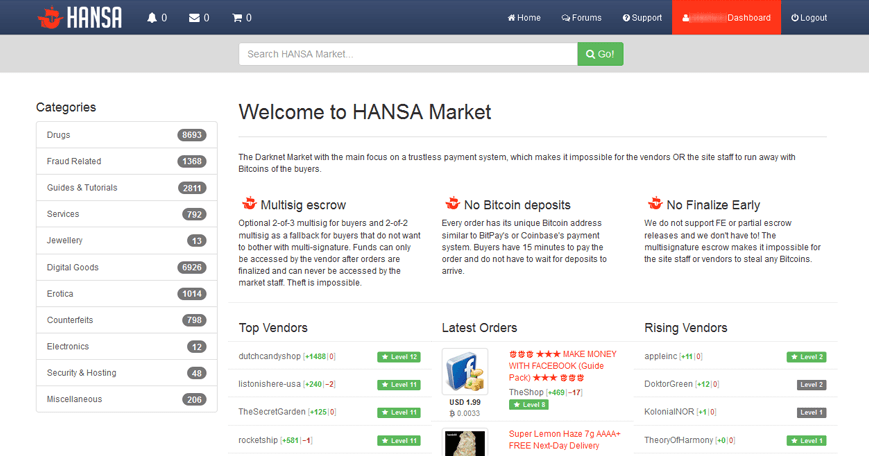Authorities to Sell Hansa Market Bitcoin
Before Europol and Netherlands police took down the Hansa darknet market, police in Bavaria arrested the owners of an illegal eBook trading website. The website allowed users to buy copyrighted eBooks for less than the publisher had listed the books for on other sites or in bookstores.
However, the authorities wanted the owners of the eBook site for another purpose; the owners of the site LuL.to also owned the Hansa marketplace. Now, according to an announcement from Bavaria’s Central Office of Cybercrime, the authorities plan to sell the bitcoin seized during the arrest of the LuL.to and Hansa owners.
In the proceedings against the operators of the illegal booksharing platform “read and listen” (LuL.to), the central office Cybercrime Bayern, which was established at the Attorney General Bamberg, in cooperation with the Landesjustizkasse Bayern has various crypto currencies worth more than 12 million euros by way of emergency sale sold.
Hansa Darkweb Market
Two main accused found large amounts of cryptocurrencies in the course of the investigation that are allegedly linked to their criminal activities. Since all crypto currencies are exposed to the risk of high price fluctuations or even total loss, an emergency sale was ordered by the Cybercrime Bayern central office and the Landesjustizkasse Bayern was commissioned with their implementation. The emergency sale has its legal basis in § 111p StPO. According to this provision, it is possible to sell assets seized before a final conviction if their deterioration or a significant loss of value threatens.
In a labor-intensive and time-consuming process, a total of 1,312.49 bitcoin, 1,399.04 bitcoin cash, 1,312.49 bitcoin gold, and 220.81 ethers were sold in more than 1,600 individual transactions via a German-based trading platform. The sales proceeds achieved total just over 12 million euros. The entire sales process lasted from 20.02.2018 to 25.04.2018.
The extent to which the proceeds of sale will be used to satisfy the claims of the injured party, whether it benefits the public purse or is to be distributed to the accused, will only be determined in a judgment after the conclusion of the main proceedings. The emergency sale carried out at the present time served solely to preserve the value of the seized assets.
The extensive investigations against the operators of LuL.to continue unchanged. A time for the indictment has not yet been determined. At present there are still elaborate evaluations of the customer and order databases in order to quantify the exact damage for the right holders.
Since 1 January 2015, the Central Office of Cybercrime Bavaria has been established at the Attorney General’s Office in Bamberg. This central office is responsible throughout Bavaria for handling outstanding investigations in the field of cybercrime. It investigates in cooperation with the corresponding specialists of the Bavarian police or the Federal Criminal Police Office and with international partners, eg in attacks on major economic activities or in organized cybercrime proceedings. Even if a high level of investigation work in the field of computer and information technology has to be carried out in the case of general crime, the prosecutors of the central office act. The cases dealt with are varied: they range from hacker attacks to cases of advance payment fraud on the Internet,